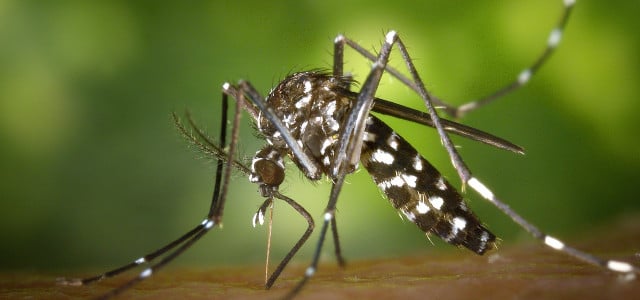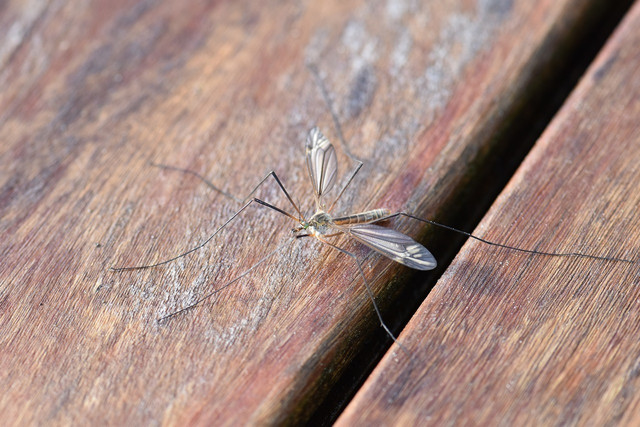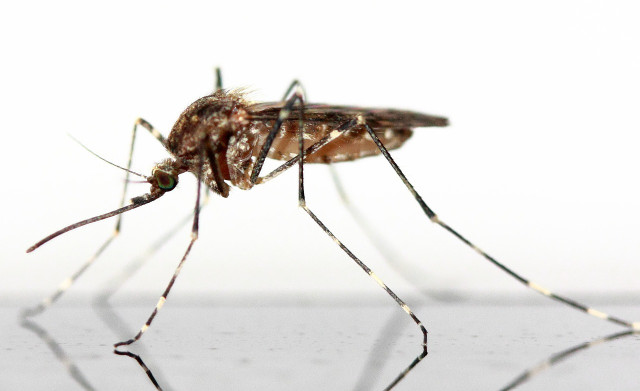
A tiger mosquito bite is indistinguishable from that of a native mosquito. The difference lies in the possible pathogens. Find out here what you should look out for and how you can protect yourself from a bite.
A tiger mosquito bite is rare in Germany – for now. While tiger mosquitoes (Aedes albopictus) were only found in Germany as individual specimens around ten years ago, according to the Federal Environment Agency, larger populations now appear in summer. The warmer temperatures resulting from climate change are encouraging their spread in this country. The tiger mosquito, which is native to Southeast Asia, came to Europe on ships and airplanes, and travel and intensive trade in goods helped it to spread quickly. It has now been spotted mainly in southern countries such as Spain and France, and can be found throughout Italy. In Germany, it is found in the southwest of the country, and experts expect it to spread further.
A tiger mosquito bite can be dangerous. The tiger mosquito can transmit various pathogens, including roundworms or Zika and dengue viruses. In Germany, the tiger mosquito has not yet transmitted any pathogens, but the Federal Environment Agency already believes that the growing population poses a “potential risk to human health in Germany”.
Only females bite humans. In order to transmit the pathogens, a female mosquito must have previously bitten an already infected person. The insects themselves do not carry the viruses and parasites.
Avoid tiger mosquito bites

(Photo: CC0 / Pixabay / Pitsch)
The tiger mosquito is an aggressive mosquito because, unlike the mosquitoes native to Germany, it also bites during the day. They prefer mammals, especially humans, whose skin odor they are strongly attracted to. Therefore, you should be particularly careful to protect yourself from being bitten in areas where tiger mosquitoes are found.
You can do this:
- Recognizing the tiger mosquito: The tiger mosquito is a small, black and white patterned mosquito. It has five white stripes on its hind legs, the last leg segment is white. The tiger mosquito has white stripes on its head and back.
- The tiger mosquito is attracted to dark clothing, so it is better to wear light ones.
- Stay in air-conditioned rooms. The tiger mosquito does not like the cold.
- Mosquito nets offer protection at night, and you can also install such insect nets in windows.
- Special clothing that contains insecticides already woven into it is available in specialist shops. However, these are harmful to the environment and nature. Therefore, use them with caution or in special circumstances, for example if you are pregnant and live in an area where the insecticides are prevalent.
- If you spend a long time outside, you should make sure to cover your entire body with clothing, including your neck and throat.
Here you can find more tips on how to get rid of annoying mosquitoes and wasps without using poison: Get rid of insects: These home remedies help against mosquitoes, wasps, etc.
Recognizing and treating a tiger mosquito bite

(Photo: CC0 / Pixabay / buchse12)
A tiger mosquito bite is essentially no different from that of a domestic mosquito. The protein in the mosquito’s saliva releases the messenger substance histamine in our body. This causes the affected area of skin to swell, turn red and itch. The bite is no more painful than that of a domestic mosquito.
You can treat the bite the same way as other mosquito bites.
-
Cold can help reduce swelling. Apply ice cubes or cold compresses to the bite.
- Ointments containing an antihistamine relieve the itching.
- Heat can also help: a warm spoon or electric bite healer destroys the mosquito proteins and prevents itching.
- There are tried and tested home remedies that can relieve the itching. Plants such as aloe vera and ribwort plantain are known for their cooling and anti-inflammatory effects. To do this, place the leaves of the plants directly on the bite. Ribwort plantain is a native plant that helps if you are bitten by a mosquito while out in the forest. For more home remedies, read the following article: Treating mosquito bites: natural home remedies against annoying mosquitoes.
A tiger mosquito bite heals on its own. However, if you notice flu-like symptoms such as fever, chills, severe headaches or exhaustion after a few days, get yourself examined by a medical specialist. These symptoms may be harmless, but in some cases they may be a sign of diseases such as dengue fever or West Nile fever.
Read more on Techzle\.com:
- Deer fly: What you should know about the parasite
- Got a jellyfish sting? This is what to do now
- Horsefly bite: How to recognize, treat and prevent it
** marked with ** or orange underlined Links to sources are partly affiliate links: If you buy here, you are actively supporting Techzle\.com, because we then receive a small part of the sales proceeds. .